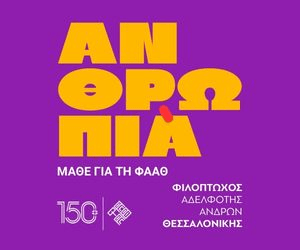Kang, Byeong-Cheol (writer, poet, translator, Doctor of Philosophy in Political Science)
Επιμέλεια: Εύα Πετροπούλου Λιανού
Kang Byeong-Cheol is a Korean author, poet, translator, and holder of a Doctor of Philosophy in Political Science degree. He was born in Jeju City, South Korea in 1964, and began his writing career in 1993. His first short story, “Song of Shuba,” was published when he was twenty-nine years old.
In 2005, Kang published a collection of short stories and has since won five literature awards, publishing over eight books in total. He was a member of The Writers in Prison Committee (WiPC) of PEN International from 2009 to 2014. From 2018 to 2022, he served as Secretary General of the Jeju Unification Education Center. Prior to that, he was a Specially Appointed Professor at Jeju International University from 2016 to 2018, a Research Professor at Chungnam National University National Defense Institute from 2013 to 2016, a Senior Researcher at the Society of Ieodo Research from 2010 to 2017, and CEO of Online News Media Jejuin News from 2010 to 2013.
Kang also worked as an editorial writer for NewJejuIlbo, a newspaper in Jeju City, Korea. Currently, he holds the position of Research Executive at The Korean Institute for Peace and Cooperation.
The black cat with yellow eyes
On a warm and bright spring day,
A little stray cat came my way,
Limping and meowing in fear,
Wondering safe of not, if I’d come closer.
Though it was scared, I offered some food,
On a food plate, it looked confused,
It ran away in surprise,
But later came back with curiosity eyes.
Under the Juniper tree, it ate,
Slowly, it began to abate,
No longer limping, it regained its life,
It climbed up five stairs and came close to me.
But still, the cat was afraid,
I wondered how long it would take,
To gain its trust, to come closer,
To see me as more friendly.
On a warm spring day, we gazed,
Into each other’s eyes, amazed.
I wondered what the cat was thinking,
Perhaps the cat was also wondering what I was thinking.
The truth is unknown, but still,
We shared a moment, a thrill,
Of peace, on that spring day,
The cat and I, lost in deep thoughts.
노란 눈의 검은 고양이
따뜻하고 밝은 봄날에,
작은 들고양이가 내게 다가왔지,
두려움에 절뚝거리며 야옹거리고,
내가 더 다가가도 괜찮은 지 두려운 듯이
그러나 고양이가 두려워하는 것을 알면서도,
음식을 내어 주었지,
먹이 접시 앞에서 고양이는 혼란스러운 것 같았지만,
놀란 듯 도망갔다가 큰 눈으로 다시 돌아왔어.
향나무 그늘에서 고양이는 먹이를 먹으며,
서서히 안정을 되찾았지,
절뚝거리지도 않고, 생명력도 찾았어,
다섯 계단을 올라와 내게 가까이 다가왔어.
하지만 고양이는 여전히 두려움을 느끼고 있었지,
고양이의 신뢰를 얻기 위해서는 얼마나 걸릴까?
고양이가 나를 친근하게 생각하며,
가까워질 수 있게 되는 날을 기대해 보았지.
따뜻한 봄날, 우리는 서로 눈을 마주쳤어,
고양이가 무엇을 생각하고 있는지 궁금해했고,
아마 고양이도 내 생각이 궁금한 것 같았지
진실을 알 수는 없었지만
우리는 그 봄날에,
평온함의 순간을 함께 했어
고양이와 난, 깊은 생각에 잠겨 있었어.
Symbol of discarded things
The yellow peel and sweet flesh of a banana
reveal the fate of being discarded.
This is similar to a part of our lives
where everything we have will eventually be discarded
when it serves its purpose.
Still, we cherish those things.
The pitiful sight of things that have served their purpose
teaches us a lesson that we cannot avoid.
No matter how beautifully wrapped a gift is,
the wrapping is torn and discarded
when the gift is unwrapped.
Everything we have
will eventually become unnecessary and be thrown away.
The tree that no longer bears leaves,
the elongating shadow of the setting sun,
the elderly man leaning on his cane,
the falling petals of a flower,
and the dry autumn leaves rolling on the street
are symbols that, memories and experiences in our lives,
will eventually become unnecessary and be discarded.
Our lives are a pile of discarded leaves
that make way for richer sprouts.
All discarded things
are meaningful symbols of life.
버려지는 것의 상징
바나나의 노란 껍질과 하얀 속살,
달콤한 맛과 결국 버려지는 노란 껍질
이것은 우리 삶의 일면과도 닮았지.
우리가 가지고 있는 모든 것들은
언젠가는 역할이 끝나고 버려질 운명이지만,
그래도 우리는 그것들을 소중히 여기고 있지.
역할이 끝난 것들의 불쌍한 모습은
피할 수 없는 막다른 골목의 그림자
우리에게 무엇을 가르쳐 줄까?
아무리 화려한 포장지도
선물을 뜯는 순간 찢겨서 버려진다
우리가 가지고 있는 모든 물건은
언젠가는 더는 필요하지 않게 되고 버려진다.
새싹이 나오지 않는 고목
길어지는 석양의 그림자
지팡이를 짚은 노인
거리에 굴러가는 가을 낙엽
이러한 상징들은
마지막까지 우리 삶에 남은 추억과 경험들도
언젠가는 버려진다는 걸 보여주지.
우리 삶은 버려진 낙엽이 쌓여
새싹을 더욱 풍요롭게 하지
모든 버려지는 것들은
더욱 의미 있는 삶의 상징



































